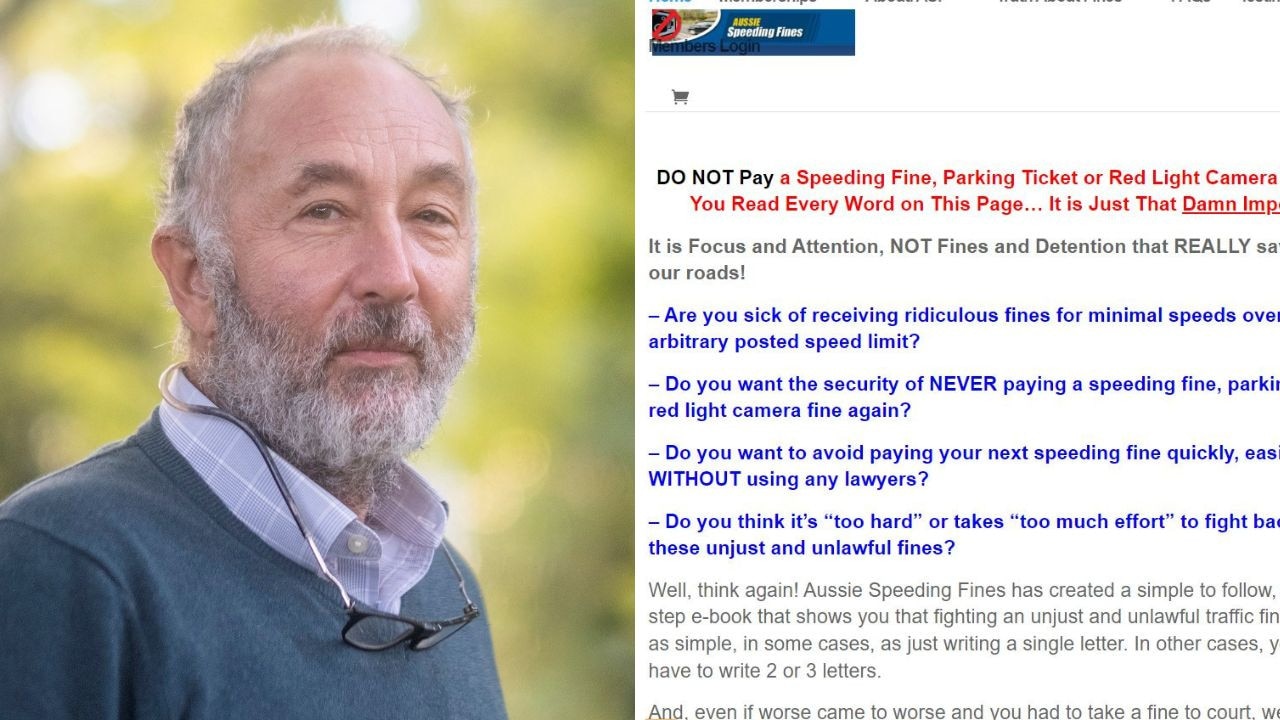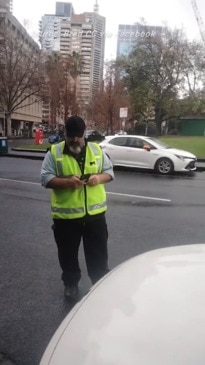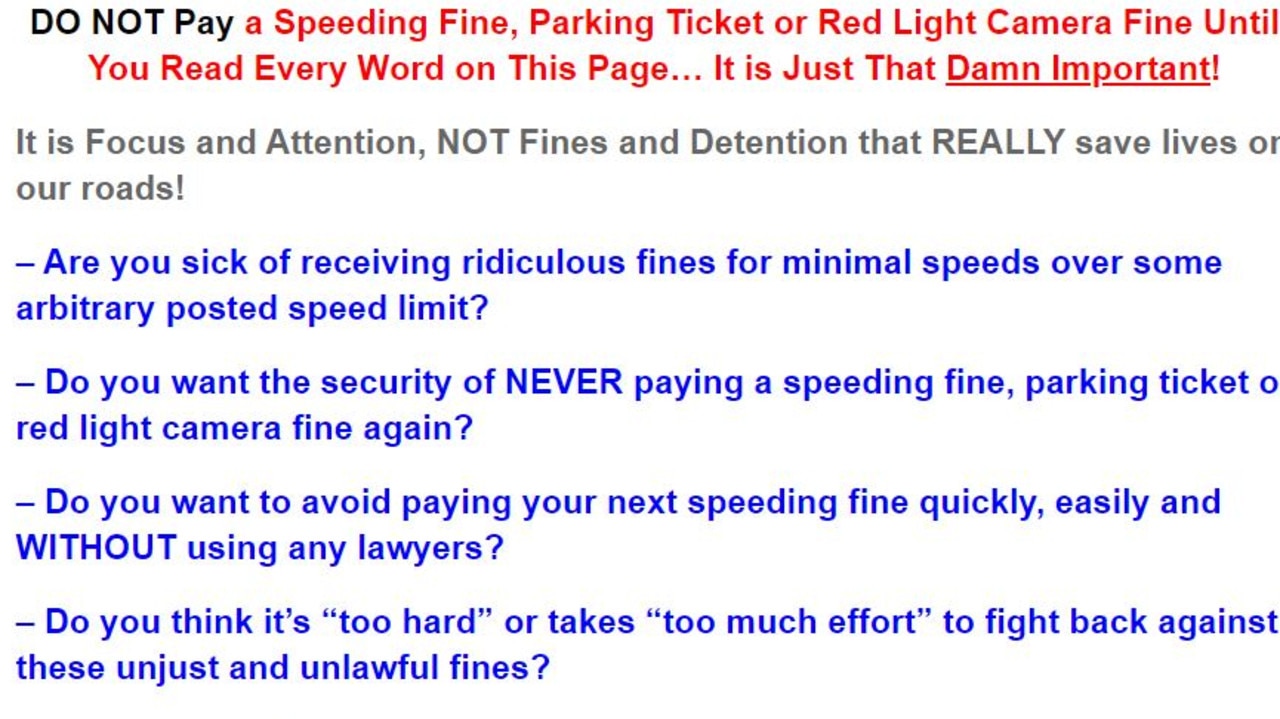Disturbing tactics used by members of Sovereign Citizen ‘cult’
Australians are being sucked into a dangerous ‘cult’ with deceptive tricks that cost a fortune and can leave them with a criminal record.

Sovereign citizens pedalling insane interpretations of the law have been blasted over their inventive tactics to corrupt everyday Australians.
The pseudolaw aficionados have taken to charging hefty subscription fees to websites that sell the false promise of getting out of paying fines for breaking the law.
The disturbing discovery and the worrying lengths some such groups go to in efforts to flout Australia’s legal system has been researched at length by Southern Cross University expert Associate Professor David Heilpern.
He paid about $150 – as part of his research – for access to a site called Aussie Speeding Fines that guaranteed its material would give subscribers information that would help them avoid legal penalisation.
Speaking with news.com.au last week after presenting his findings at a University Technology Sydney conference, he detailed the “absolute garbage” coming out of the sovereign citizen movement.

On the speeding fines site, he observed a series of deeply problematic items, including the promotion of methods to delay or void fines, which typically involved lying in a statutory declaration.
“There’s two things with that – you can’t lie to courts, that’s a criminal offence. And secondly, it doesn’t work anyway,” Associate Professor Heilpern, who was a magistrate for 22 years, said.
“Magistrates and prosecutors have seen this time and time again and none of it has ever worked.”
Sites run by sovereign citizen were just taking people’s money and feeding them “absolute garbage” he said, adding that in most cases, recommendations they made would end up costing more through the court process.
While to most everyday Aussies the people attached to the sovereign citizen movement were nothing more than an occasional nuisance, Associate Professor Heilpern warned they had a dangerous side too.
“At the pointy end of this movement is the violence. We had the tragic deaths of two police in Queensland last year and there’s been two sieges in NSW in the last 12 months where people sprouting pseudolaw have attacked,” he said.
The movement also appeared to be growing, he added, with organisations claiming to have tens of thousands of subscribers.

“Even if it’s half that, there are people making significant amounts of money out of peddling legal gobbledygook.”
People involved in the painfully incorrect interpretation of the law have far-reaching impacts on how the country operates, with these groups contributing to the legal system becoming “clogged up”, Associate Professor Heilpern said.
“This movement is the ultimate selfishness. It’s saying, ‘the law doesn’t apply to me because I’ve declared myself a sovereign citizen’.

People with such self-righteous attitudes typically felt they knew more than those upholding the legal system including judges and police.
“They can be a danger to the community too which affects everyone,” he said, adding that many felt they could drive unlicensed and unregistered on the road, and speed without any legal ramifications.
In many cases, the friends and family of people swept into the movement were also being “ripped off” because they were tricked into signing up to dodgy websites.
When Associate Professor Heilpern signed up to Aussie Speeding Fines, he paid a $147 fee to gain access to an online book that could not be copied and had an undetermined expiry date.
“It’s only available through the website and of course it has a time frame when presumably you’ll have to pay more,” he said, joking it was about the cost of an average speeding ticket.
He strongly urged Australians to avoid and don’t believe what they read on these websites.
“Don’t give your money to people who are essentially peddling garbage,” he said.
Why is the sovereign citizen movement gaining traction?
While it was impossible to summarise why Australians were clinging onto pseudolaw ideologies, Associate Professor Heilpern suspected it had something to do with “a search for nostalgia”.
“I think it’s the ultimate ‘me, me, me’ action. If the gateway drug to addiction is trauma, then the gateway to sovereign citizen movement is traffic law,” he said.
More Coverage
“People are fed up and I think Covid has stirred that pot quite a lot.”
He said the best way to describe the movement was a “cult”.
brooke.rolfe@news.com.au






